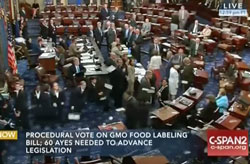 Hello from my iPad Pro. I’m using it for this post because I wanted to write about my experience using the new iPad. If I was not able to successfully use it for this purpose it would have been a big fail. The question I wanted to answer is, “Can I replace my MacBook Pro with the iPad Pro, at least for some trips or times when I don’t want to carry my laptop?” The answer is, “I think I can.” That’s because I haven’t gone cold turkey on a trip with the iPad yet. But I will. In the meantime I find myself using the iPad more and more.
Hello from my iPad Pro. I’m using it for this post because I wanted to write about my experience using the new iPad. If I was not able to successfully use it for this purpose it would have been a big fail. The question I wanted to answer is, “Can I replace my MacBook Pro with the iPad Pro, at least for some trips or times when I don’t want to carry my laptop?” The answer is, “I think I can.” That’s because I haven’t gone cold turkey on a trip with the iPad yet. But I will. In the meantime I find myself using the iPad more and more.
I took and edited the image here with the iPad Pro. I used the Pixelmator app to edit. Like with most of my photos I mainly adjust color and brightness levels, crop and resize. With the SD card adapter to the Lightning connector on the iPad I can import photos taken on my larger cameras. This was a big deal for me. It is almost surprisingly easy.
Next up is performance speed and battery life. This iPad is lightning fast. In fact, on some app functions it seems faster than my MacBook. On a full charge I have gone all day without having to re-charge. That might be different in the field depending on the venue and work level. My MacBook Pro has great battery life but not like the iPad Pro. BTW. I have the 9.7 inch version.
The screen on this version iPad is plenty big enough to read and work on. Plus it gives me a smaller form to carry around than the full size iPad Pro. When traveling I have seen people with the larger version and it just looks too big, especially in a cramped airplane seat.
Next up is keyboard. I have the Apple Smart Keyboard. It took very time getting used to it. However, there is no way to comfortably type on it unless it is on a desk or table. Trying to type on it in your lap is an exercise in frustration. Another drawback is that the iPad has only one position which just doesn’t always work well. I am looking to replace it with a Brydge keyboard.
I also got the Apple Pencil. I am not an artist but I use it for things like taking notes when I don’t want to type them and I have used it for doctoring photos. It is the best stylus I’ve used. I bought a GearCase Pencil Pocket to hold it on my iPad cover and it works perfectly. No losing this gadget. It does have a unique way to charge itself. The end cap comes off to plug into your iPad lightning port for charging or there is an included adapter that lets you plug it into a wall charger with a lightning connector. The battery life is very long.
When it comes to apps I still not found many that are optimized for the iPad Pro. I think that’s just a matter of time before this is a non-issue though. Apps I use on the iPad include: Facebok, Twitter, Photos, Dropbox, Mail, Contacts, Evernote, Weather Bug, Maps, Kindle, Pixelmator, Photoshop Express and more. On a side note, I’m done with the Weather Channel. The ridiculous click bait headlines for example, drive me crazy.
So, would I recommend the iPad Pro? Yes. Pros: Battery life, screen, processing speed. Cons: It is still an iOS app driven device and more apps are needed to replicate the capabilities of a full notebook.
If you have any questions please leave them in comments and I’ll do my best to answer them.
 Rhea + Kaiser (R+K) has produced a new video that promotes the expected and unexpected opportunities awaiting students and graduates of the Agricultural Communications Program at the University of Illinois at Urbana-Champaign.
Rhea + Kaiser (R+K) has produced a new video that promotes the expected and unexpected opportunities awaiting students and graduates of the Agricultural Communications Program at the University of Illinois at Urbana-Champaign.









